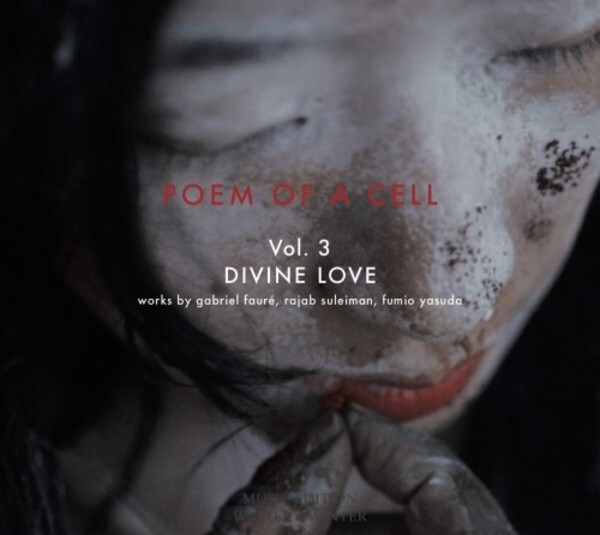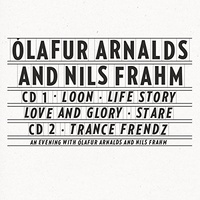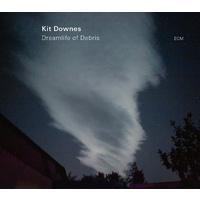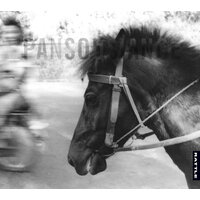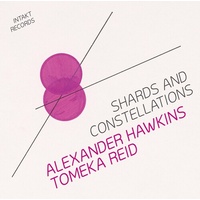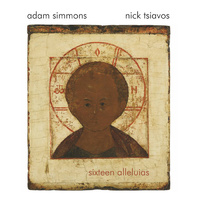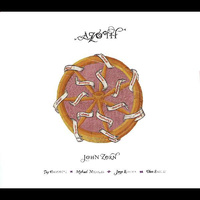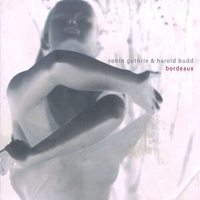The Trilogy
Three cultures, three religions, three poems. »The Song of Songs« from the Tanach (300 BC) is in the key focus of Vol. 1. Vol. 2 deals with »The Flowing Light of the Godhead« by Mechthild of Magdeburg (1207-1282). »Divine Love« completes the trilogy »Poem of a Cell«. Vol. 3 transforms in sounds and music theses of Rabi'a of Basra (also known as Rabia al-Adawiyya al-Qaysiyya) and deals with the terms »paradise« and »inferno«. Rabi'a of Basra, who lived around 714-801, is the legendary Islamic mystic who is considered one of the first Sufi woman to interpret the doctrine of »Divine Love«.
The singer Saada Nassor from the Islamic influenced Zanzibar interprets the mysticism of Rabi'a of Basra in a duet with the composer and qanun player Rajab Suleiman. Rajab Suleiman composes »Ni Wewe Tu« (»You are the only one«) in the tradition of Taarab music, which he expands and renews. Rajab Suleiman: »New times call for new structures to advance artistic goals.« The intimate duet of voice and qanun is unusual, but the qanun is one of the traditional instruments of this music, which has an Arabian origin. The beginnings of Taarab go back to the time of Sultan Barghash ibn Said (1870-1888), Sultan of Zanzibar and son of Sultan Said ibn Sultan of Oman. The poem has been composed by the famous Tanzanian poet Mohamed Ahmed in a special, traditional metre. The world premiere (July 2017) of the sound- and 3-channel-film-installation „Poem of a Cel“l at the Zanzibar International Film Festival (ZIFF) was dedicated to Mohamed Ahmed. Basis for the lyrics are text fragments according to Rabi'a of Basra:
All love aims at the essence of unity.
The highest love aims at eternal unity.
I am searching for my lover, not his splendour of gifts,
not visions, miracles and power over the material world.
Love is the key to being one in the love match
and love is devotion:
Your will is my will!
Your love is now my desire and my bliss,
and was disclosed to the eyes of my heart, thirsty for you.
I have no-one but you!
You are my bliss, deeply rooted in me:
If you are content with me, then, oh desire of my heart,
happiness appears to me.
I long to pour water into hell
and set fire to paradise,
making those two veils disappear
and not allowing anyone to pray to you for fear of hell
and in hope of paradise,
but solely for the sake of your eternal beauty.
The Japanese composer Fumio Yasuda creates commissioned works for the ensemble Forma Antiqva under the direction of Aarón Zapico and for the Kettwiger Bach Ensemble under the direction of Wolfgang Kläsener for the sound- and 3-channel-film-installation »Poem of a Cell« by Stefan Winter. His composition »Unity with the Divine«, which is at the center of the album, is a free adaptation of Rajab Suleiman's »Ni Wewe Tu«. Together with the orchestral sounds Fanny Winter recites lyrics according to Rabi'a of Basra. The album »Divine Love« opens with »Elternal Love«. Love, ecstasy and the desire to the union with the divine connect the three monotheistic world religions across all differences.
Fumio Yasuda created also arrangements of Gabriel Fauré's Requiem. »In Paradisum« is one of the key works of »Poem of a Cell«. Music and text interpret dying as a rite of passage, using the eschatological metaphor of the heavenly Jerusalem. Jerusalem is the controversial city of the three religions, where the main sanctuaries of the Jews, Christians and Muslims are united. The Wailing Wall, the remainder of the Jewish temple district, is adjacent to the Temple Mount with the Dome of the Rock, the al-Aqsa Mosque, and in the immediate vicinity of the Church of the Holy Sepulcher where Christians commemorate the crucifixion and resurrection of Jesus. Fauré gives the term requiem its original meaning: the word is derived from the Latin requies, which can be translated as respite, rest or relaxation.
Quite on the contrary stays the composition »Battle over Aleppo«. In Aleppo, one of the greatest tragedies of our time becomes reality. For reasons of power politics the inferno became reality on earth.
»Poem of a cell« is about desire and spite, longing and disgust, violence and lenity, destruction and salvation, separation and unification, innocence and guilt, permission and suppression, woman and man.
Sound- and 3-channel-film-installation
POEM OF A CELL
With living paintings — which form a visually stunning film triptych — and fantastic music and sound worlds, »Poem of a Cell« penetrates deep into the world of Jewish-Christian-Islamic culture. Carefully composed allegories, colors and sounds evoke memories from the past, painfully touching the present and unfolding visions of the future. Pictures move very slowly, take their time and yet are signs of an all-destroying, all-transforming finiteness. A coherent story with a chronology should not be expected, but rather unreal staged scenes are created, which are only associatively connected.
At the center is the woman, embodied by the Japanese artist Noriko Kura. She serves the sacrificial priest and kneels on bloody earth. Like in a fever dream she floats over settlements, which are wiped out house by house. She tries to climb the ladder to heaven. She sees the paradise in flames. She wants to return in the womb of Mother Earth. The Wailing Wall, Kaaba, and the benediction Urbi et Orbi of the Popes are reflected in her tear-filled eyes and on her face. On her skin burn scenes of the pulgatorio, flames from 9/11. An armoured conduit penetrates her. Image fragments from Rosso Fiorentino, Masaccio and Jacopo da Pontormo move over her back. Like a petrified body she lies in a dilapidated church, where not even remnants of Michelangelo's former paintings can be found, where an angel watches over her. Over and over, she dives underwater into the world of the dead, to purify herself and emerge newborn. In recurrent waves of the sea, she builds her heavenly tower between water and air and prepares her wedding. In the wind fly her colorful wedding flags. She creates life with bright and strong colors. She creates her counterpart out of white clay. She directs her gaze to the rising sun at the horizon. Music from five centuries and sounds of the nature flow into each other and interact with this strange yet well-known flood of images.
Trailer: https://vimeo.com/222557569
Funded by the Kulturstiftung des Bundes, Kunststiftung NRW, Verein Ausstellungshaus für Christliche Kunst, Rudolf Augstein Stiftung, Stiftung Kagel-Burghardt. ![]()
(025091025220)
| SKU | 025091025220 |
| Barcode # | 025091025220 |
| Brand | Winter&Winter |
Be The First To Review This Product!
Help other Birdland Records users shop smarter by writing reviews for products you have purchased.

